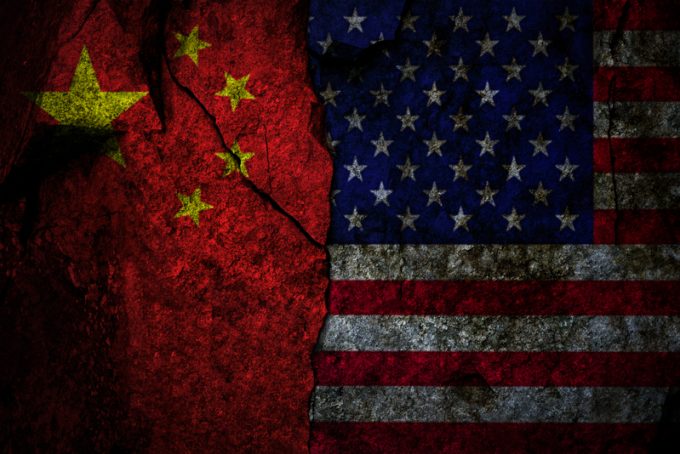As tariffs loom, air freight forwarders ponder the chances of a happy new year
As they ponder the prospects for 2025, freight forwarders in the US can look back ...
FDX: ABOUT USPS PRIVATISATIONFDX: CCO VIEWFDX: LOWER GUIDANCE FDX: DISRUPTING AIR FREIGHTFDX: FOCUS ON KEY VERTICALFDX: LTL OUTLOOKGXO: NEW LOW LINE: NEW LOW FDX: INDUSTRIAL WOESFDX: HEALTH CHECKFDX: TRADING UPDATEWMT: GREEN WOESFDX: FREIGHT BREAK-UPFDX: WAITING FOR THE SPINHON: BREAK-UP ALLUREDSV: BREACHING SUPPORTVW: BOLT-ON DEALAMZN: TOP PICK
FDX: ABOUT USPS PRIVATISATIONFDX: CCO VIEWFDX: LOWER GUIDANCE FDX: DISRUPTING AIR FREIGHTFDX: FOCUS ON KEY VERTICALFDX: LTL OUTLOOKGXO: NEW LOW LINE: NEW LOW FDX: INDUSTRIAL WOESFDX: HEALTH CHECKFDX: TRADING UPDATEWMT: GREEN WOESFDX: FREIGHT BREAK-UPFDX: WAITING FOR THE SPINHON: BREAK-UP ALLUREDSV: BREACHING SUPPORTVW: BOLT-ON DEALAMZN: TOP PICK

Changes to US de minimis rules will not have the desired “magic bullet” effect on the flood of cheap Chinese goods into the country.
Expectations are that if US legislators dramatically reduce the $800 de minimis exemption, this will put the brakes on the surging shipments from Chinese e-commerce heavy hitters Shein and Temu.
Those expectations have been dashed by Cargolux CEO Richard Forson, who told The Loadstar: “If we look at Europe as the example, I don’t see a slowdown.”
He said: “The de minimis rule in Europe is €150 ($163), not only for e-commerce, but in general, for packages coming in. We have seen no slowdown in the demand for cross-port e-commerce – rather, it is increasing.
“And, if you look at those ecommerce platforms [and the cost of their goods], the number of items you would need to buy in to break that limit is going to be significant.”
At $800, the US de minimis threshold for imports is the largest in the world, having quadrupled in 2016 following the passage of the Trade Facilitation and Trade Enforcement Act, but there have been suggestions that changes are needed.
This has largely been prompted by the tsunami of low-value e-commerce imports from China that fly under the threshold and represent some $67bn in lost tax.
The Americas Act, proposed by Republican congress member Maria Elvira Salazar, promises $14bn to domestic textile manufacturing to incentivise near-shoring, and commissioners support the act, suggesting it could be funded by the increased revenue from the de minimis rate change.
Shipping advisor for The Kemmsies Group Dr Walter Kemmsies also challenged the effectiveness of the “magic bullet” approach to reducing volumes.
“Everyone is mistakenly believing is that the high American de minimis limit is why Shein and Temu are doing so well, but you only need to look at Europe to know that this is wrongheaded thinking,” he told The Loadstar.
“Europe has a far lower de minimis threshold and is still a major market for Shein and Temu, and that’s because there is a huge appetite for these cheap goods.”
Noting that the proposed legislation includes a “blacklist” aspect that would automatically deny them de minimis privileges – China and Russia among those that would be listed – Dr Kemmsies said he would expect a repeat of behaviour seen in the 1980s.
“Reagan hit Japan with tariffs in an effort to dramatically cut imports to the US, and it sort of worked, dropping from 24% to 12%,” he explained. “But it also engendered a shift, with companies simply moving their factories out of Japan and into Hong Kong.
“Now we are seeing similar action – taken pre-emptively – with Chinese companies moving their manufacturing operations to Latin America.
“It is funny, these cycles that we seem to go through, but a lot of Chinese business is moving to the US’s doorstep.”
Comment on this article